Retreats to Connect with Our Good Heart
Apr 10, 2024
When we think about our own death we may wonder what will happen as we take our last breath, and what happens next? How does thinking about this now help us in our daily life?
This article, which includes extracts from the book How to Transform Your Life by Venerable Geshe Kelsang Gyatso, shows that by thinking deeply about death and rebirth we will come to appreciate the preciousness of every moment of our present life and how immensely meaningful it is for our happiness and freedom now and in all our future lives.
To understand what happens at the time of death and after death we first need to understand about the nature of the mind and how our mind is separate from our body. Through this we will gain conviction in the existence of our future lives.
For more details on this topic, download your free copy of How to Transform Your Life.
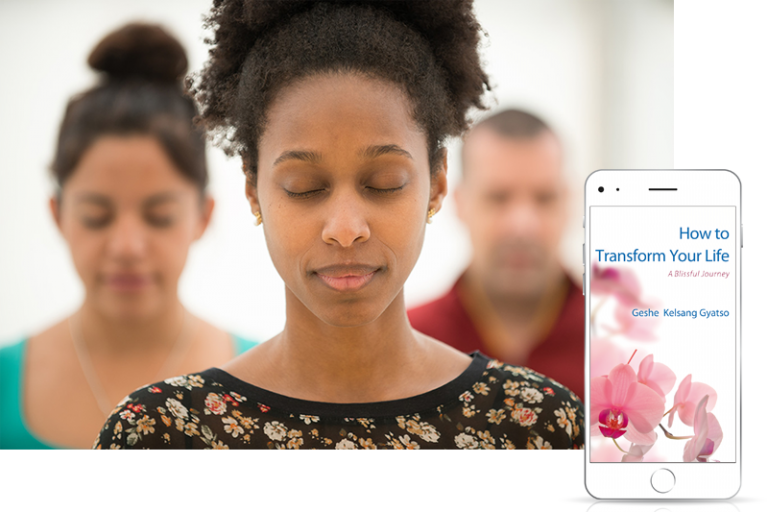
“These instructions are scientific methods to improve our human nature.”
(No sign-up required)
To answer this question we need to understand the nature of the mind. In How to Transform Your Life Venerable Geshe Kelsang Gyatso explains that the body and the mind are separate entities:
‘Some people think that the mind is the brain or some other part or function of the body, but this is incorrect. The brain is a physical object that can be seen with the eyes and that can be photographed or operated on in surgery. The mind, on the other hand, is not a physical object. It cannot be seen with the eyes, nor can it be photographed or repaired by surgery. The brain, therefore, is not the mind but simply part of the body.
'There is nothing within the body that can be identified as being our mind because our body and mind are different entities. For example, sometimes when our body is relaxed and immobile, our mind can be very busy, darting from one object to another. This indicates that our body and mind are not the same entity. In Buddhist scriptures, our body is compared to a guest house and our mind to a guest dwelling within it. When we die our mind leaves our body and goes to the next life, like a guest leaving a guesthouse and going somewhere else.
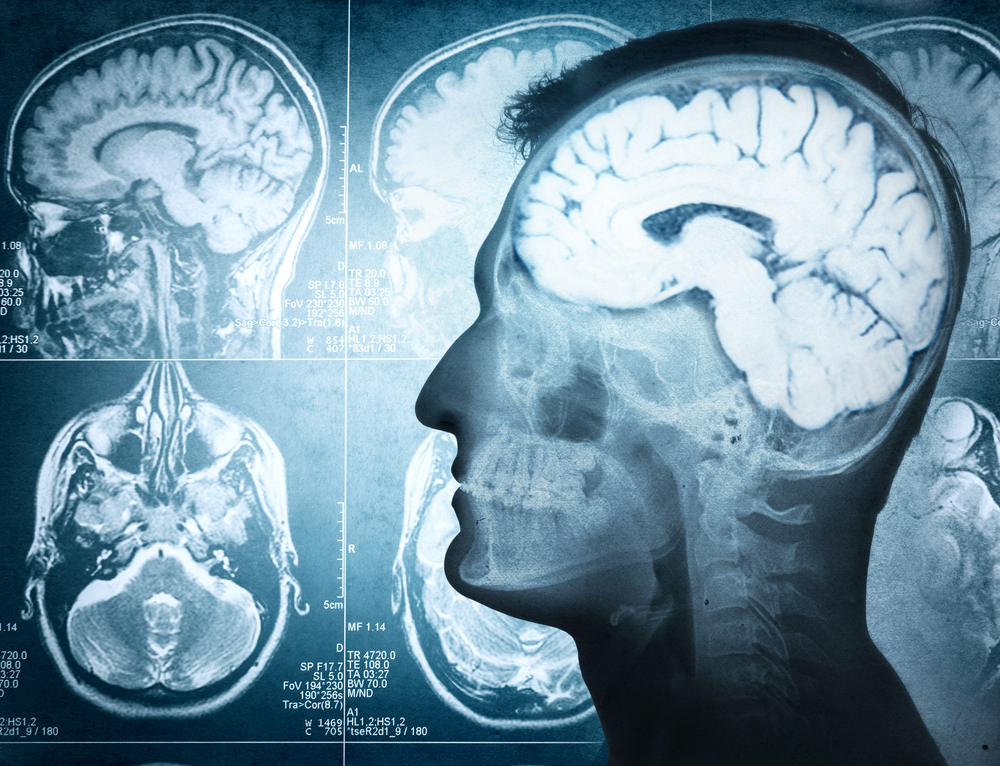
‘If the mind is not the brain, nor any other part of the body, what is it? It is a formless continuum that functions to perceive and understand objects. Because the mind is formless, or non-physical, by nature, it is not obstructed by physical objects. Thus, it is impossible for our body to go to the moon without travelling in a spaceship, but our mind can reach the moon in an instant just by thinking about it. Knowing and perceiving objects is a function that is unique to the mind. Although we say, ‘I know such and such’, in reality it is our mind that knows. We know things only by using our mind.’
Venerable Geshe Kelsang Gyatso
The mind is formless and capable of perceiving and understanding objects, whereas the body is a physical form that is incapable of perceiving objects. They have different causes, and our mind does not arise from the body. Understanding this we will see that when our body disintegrates at the time of death, our mind does not. Instead of ceasing at the time of death, the mind leaves the body and continues on to the next life; the continuum of the mind never ceases. By thinking deeply about these points we can develop conviction in the existence of future lives. As Venerable Geshe Kelsang Gyatso explains:
'Many people believe that when the body disintegrates at death, the continuum of the mind ceases and the mind becomes non-existent, like a candle flame going out when all the wax has burned. There are even some people who contemplate committing suicide in the hope that if they die their problems and sufferings will come to an end. These ideas, however, are completely wrong. As already explained, our body and mind are separate entities, and so even though the body disintegrates at death, the continuum of the mind remains unbroken. Instead of ceasing, the mind simply leaves the present body and goes to the next life. For ordinary beings, therefore, rather than releasing us from suffering, death only brings new sufferings. Not understanding this, many people destroy their precious human life by committing suicide.'
Death is the permanent separation of our body and mind. Although there is a relationship at present between our body and mind, this will definitely come to an end and our body and mind will separate for ever.
In reality, the mind separates from the physical body every night when we fall asleep and we experience all the appearances of our dream world. For as long as the connection between our physical body and our mind remains intact, our mind will remain connected to our body, but when we die this relationship is broken. As Venerable Geshe Kelsang Gyatso explains:
‘During the waking day we have waking awareness through which various kinds of waking things appear to us. This awareness is a gross mind because it is not difficult to recognize. When we fall asleep our gross mind, or waking awareness, dissolves into our subtle mind of sleep. At the same time, all our appearances of the waking world become non-existent; and when we experience deep sleep, our subtle mind of sleep dissolves into our very subtle mind of sleep, the clear light of sleep. At this stage, we have become like a person who has died. Then, because of our maintaining a karmic connection with this life, from our clear light of sleep our gross mind, or waking awareness, will arise again and various kinds of waking things appear to us again.
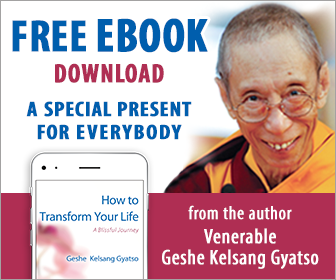
‘The process of sleeping is very similar to the process of dying. The difference between these two is that when we are dying our gross and subtle minds will dissolve into our very subtle mind of death, known as the ‘clear light of death’. Then, because of our karmic connection with this life ceasing, our very subtle mind leaves this body, goes to the next life and enters a new body, and then all the various kinds of things of the next life will appear to us. Everything will be completely new.”’
‘When we fall asleep, our gross inner winds gather and dissolve inwards, and our mind becomes progressively more and more subtle until it transforms into the very subtle mind of the clear light of sleep. While the clear light of sleep is manifest, we experience deep sleep, and to others we resemble a dead person. When it ends our mind becomes gradually more and more gross and we pass through the various levels of the dream state. Finally, our normal powers of memory and mental control are restored and we wake up. When this happens, our dream world disappears and we perceive the world of the waking state.
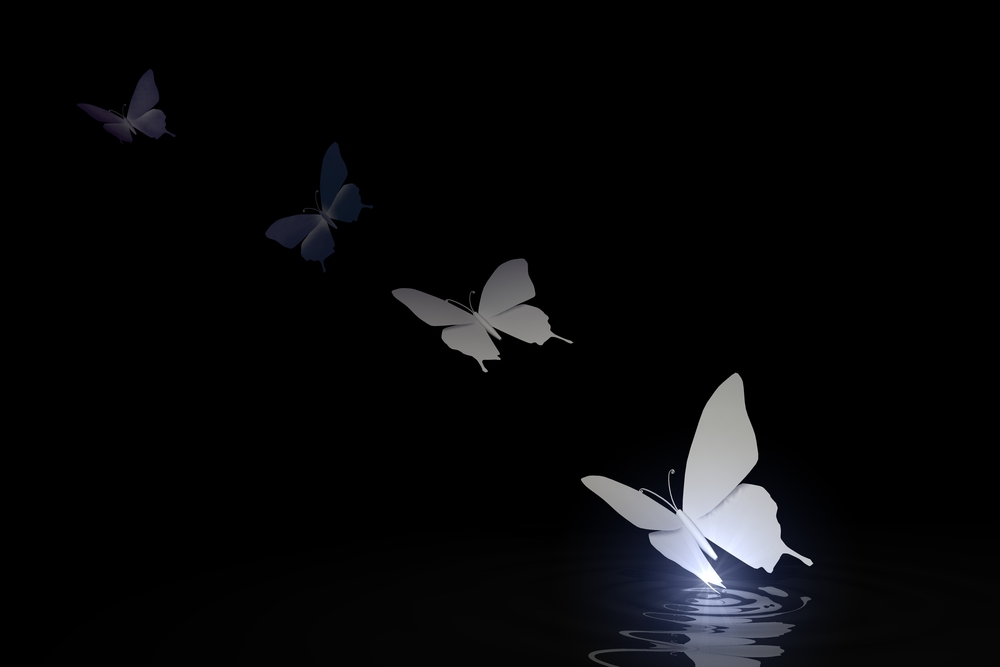
‘As we die, our inner winds dissolve inwards and our mind becomes progressively more and more subtle until the very subtle mind of the clear light of death becomes manifest. The experience of the clear light of death is very similar to the experience of deep sleep. After the clear light of death has ceased, we experience the stages of the intermediate state, which is a dream-like state that occurs between death and rebirth.’
Having understood what happens when we die we may wonder what happens immediately after death. What will our experience be like? Who will look after us and protect us? To answer these questions we can contemplate the following excerpt from How to Transform Your Life and relate this to our own present life:
‘In the beginning our mother was kind in offering us a place of rebirth. Before we were conceived in her womb, we wandered about from place to place as an intermediate state being – a being who is between death and rebirth – with nowhere to rest. We were blown by the winds of our karma without freedom to choose where we would go, and all our acquaintances were fleeting. We experienced great pain and fear, but from this state we were able to enter the safety of our mother’s womb. Although we were an uninvited guest, when she knew that we had entered her womb our mother let us stay there. If she had wanted to evict us, she could have done so and we would not have been alive today to enjoy all our present opportunities. We are now able to develop the aspiration to attain the supreme happiness of enlightenment only because our mother was kind enough to let us stay in her womb. In winter, when it is cold and stormy outside, if someone invites us into their warm home and entertains us well, we consider this person to be extremely kind. How much kinder is our mother, who let us enter her own body and offered us such good hospitality there!’
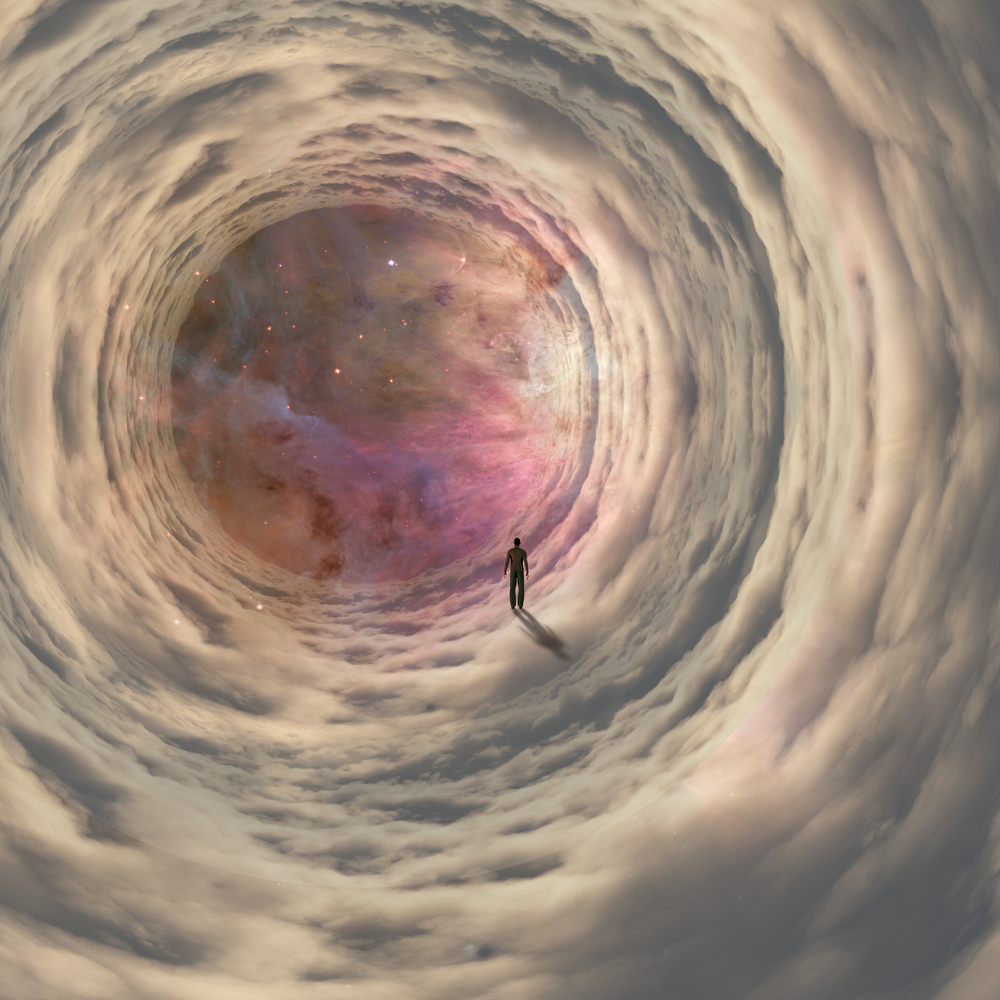
From an ordinary perspective death has little meaning; it simply marks the end of one life and the beginning of the next life. We will lose everything we have gained in this life and all our present relationships will finish; in the end all these things and relationships are deceptive as none of them will help us at the time of death and in our future lives.
As Venerable Geshe Kelsang Gyatso explains, even our own body will let us down at the time of our death:
‘When we die, this body that we have cherished and cared for in so many ways will have to be left behind. It will become mindless like a stone, and will be buried in the ground or cremated. If we do not have the inner protection of spiritual experience, at the time of death we will experience fear and distress, as well as physical pain.
‘When our consciousness departs from our body at death, all the potentialities we have accumulated in our mind by performing virtuous and non-virtuous actions will go with it. Other than these we cannot take anything out of this world. All other things deceive us. Death ends all our activities – our conversation, our eating, our meeting with friends, our sleep. Everything draws to a close on the day of our death and we must leave all things behind, even the rings on our fingers. In Tibet beggars carry a stick to defend themselves against dogs. To understand the complete deprivation of death, we should remember that at the time of death beggars have to leave even this old stick, the most meagre of human possessions. All over the world we can see that names carved on stone are the only possessions of the dead.”
How therefore can we make our life meaningful? Through contemplating and realizing that our death is certain and may come at any time we will understand the great preciousness, rarity and meaning of our present human life. With this understanding we will devote our life to engaging in actions that will lead to pure and lasting happiness. In this way we will experience peace and happiness now, and we will be using our life in the best possible way, preparing for the happiness and freedom of all our future lives. As Venerable Geshe Kelsang Gyatso explains:
‘With wisdom we can understand how our human life is precious, rare and meaningful. Due to the limitations of their body and mind, those who have taken rebirth as animals, for example, have no opportunity to understand or practise spiritual teachings that are methods to control delusions such as uncontrolled desire, anger and ignorance. Only humans are free from such hindrances and have all the necessary conditions for engaging in spiritual paths, which alone lead to pure and everlasting happiness. This freedom and possession of necessary conditions are the special characteristics that make our human life so precious.

‘Although there are many humans in this world, each one of us has only one life. One person may own many cars and houses, but even the richest person in the world cannot possess more than one life; and, when that is drawing to an end, he or she cannot buy, borrow or manufacture another. When we lose this life, it will be very difficult to find another similarly qualified human life in the future. A human life is therefore very rare.
‘If we use our human life to accomplish spiritual realizations, it becomes immensely meaningful. By using it in this way, we actualize our full potential and progress from the state of an ordinary, ignorant being to that of a fully enlightened being, the highest of all beings; and when we have done this we will have the power to benefit all living beings without exception. Thus, by using our human life for gaining spiritual realizations we can solve all our human problems and fulfil all our own and others’ wishes. What could be more meaningful than this?’
How to Transform Your Life, by Venerable Geshe Kelsang Gyatso, provides all the necessary techniques and practical advice we need to make real, inner development and transformation. In the Introduction, he says:
‘Through practising the instructions presented in this book we can transform our life from a state of misery into one of pure and everlasting happiness. These instructions are scientific methods to improve our human nature. Everybody needs to be good-natured with a good heart, because in this way we can solve our own problems as well as those of others, and we can make our human life meaningful. Every living being has the same basic wish – to be happy and avoid suffering. Even newborn babies, animals and insects have this wish. It has been our main wish since beginningless time and it is with us all the time, even during our sleep. We spend our whole life working hard to fulfil this wish.’
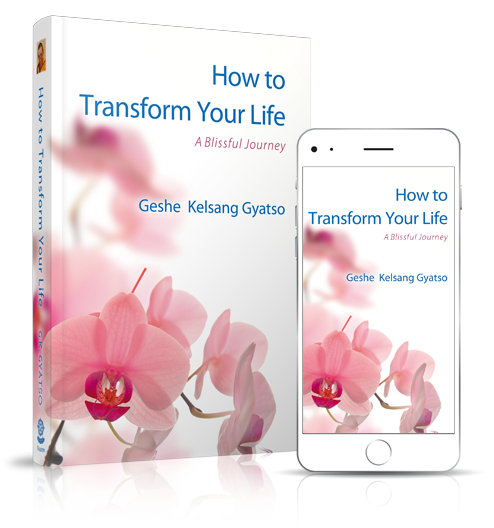
(No sign-up required)
Receive weekly gems of inspiration from each chapter of How to Transform Your Life, to help you establish a regular practice of training your mind.

At Tharpa Publications we value your privacy and your email will not be passed on to 3rd parties. You have the option to unsubscribe at any time using the unsubscribe link at the bottom of each email or by contacting [email protected]